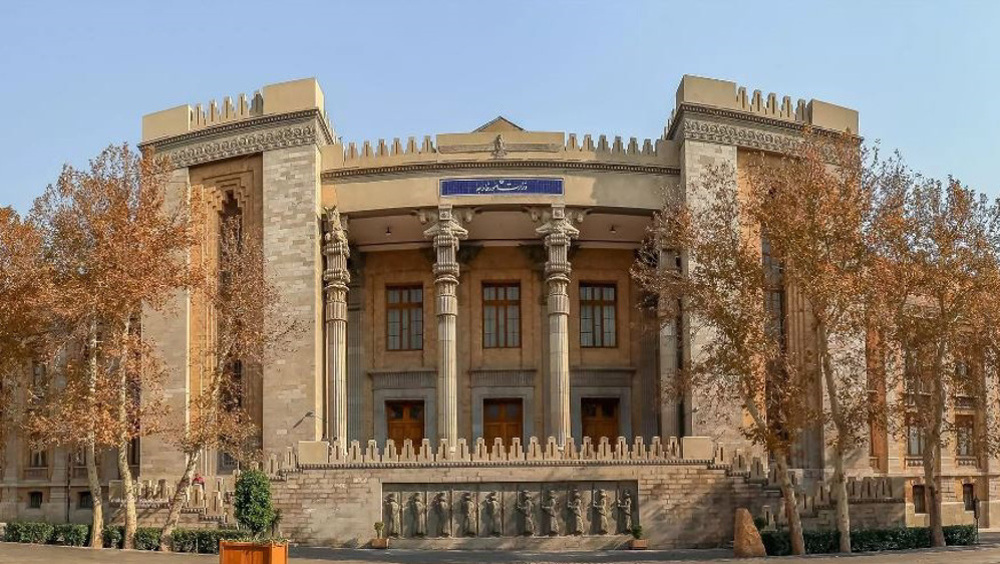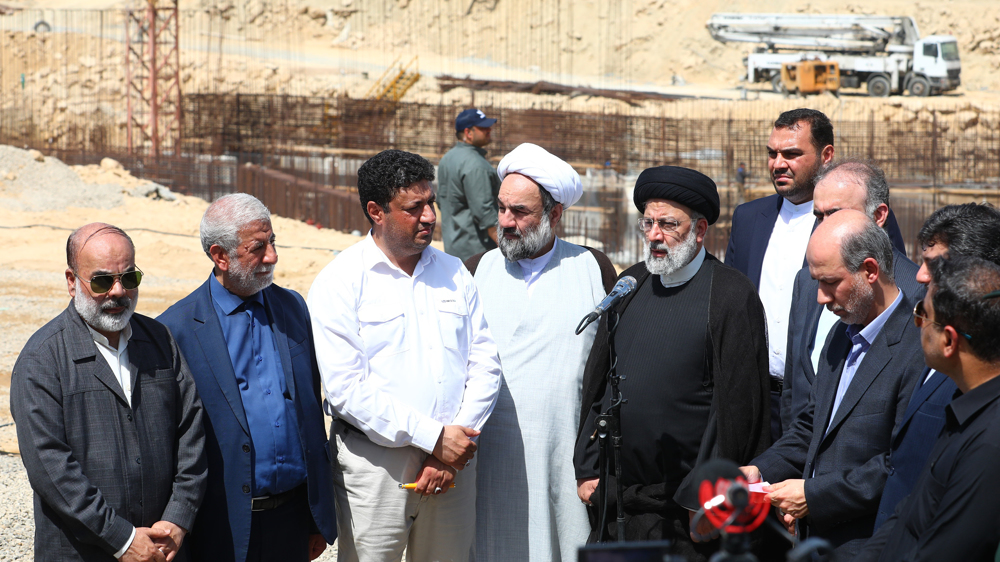Iran says 'reserves right' to act against Afghan declaration to protect Hirmand water rights
Iran says it reserves the right to act against Afghanistan’s “unacceptable” non-adherence to a treaty on Iran’s water rights of the border river of Hirmand.
“The Islamic Republic of Iran reserves the right to take necessary measures and underscores the full responsibility of Afghanistan in this regard,” the Iranian Foreign Ministry said in a statement on Friday.
The statement came a day after the Afghan side issued a declaration about the water rights pertaining to River Hirmand, also known as Helmand. Tehran said the declaration contained “contradictory and incorrect information.”
Iran and Afghanistan signed a treaty in 1973, which, the foreign ministry statement said, “clearly and unambiguously” specified the Iranian side’s water rights. “This is a legal, objective and definite right, and Afghanistan is committed to providing the aforementioned right and not taking any action, which fully or partly strips Iran of its water rights, under Article 5 of the Treaty.”
Over the past eighteen months, the statement said, Afghan rulers have failed to honor the obligations arising from the treaty to fully cooperate with Iran on the release of the water flow and the realization of Iran’s water rights.
“As long as the experts of the Islamic Republic of Iran are not allowed to visit the route and upstream of Hirmand as part of the Treaty — especially Article 5 of Protocol No. 1 of that Treaty — any comment regarding the depletion of Hirmand’s water is not accepted,” the statement said.
It reiterated Iran's emphasis on technical cooperation and study in the area of exploration through the water commissioners of the two sides and its demand for a "detailed" investigation of the water situation in Hirmand and provision of the Iranian side’s quota in accordance with the treaty.
“Continuing to fill the diversionary Kamal Khan dam, deviate the natural course of the Hirmand River and disrupt the river’s natural conditions, in addition to the non-cooperation of the Afghan authorities in determining the locations of water delivery and installing technical systems related to water level measurement, are clear violations of Articles 3, 5 and 6 of the Hirmand Treaty,” the Iranian Foreign Ministry said.
Iran has always respected the principle of good neighborliness and neighborly rights, the statement said.
River Hirmand is the longest watercourse in Afghanistan. It rises in the Hindu Kush Mountains, west of Kabul, and flows in an arc southwest until it empties out into the Hamoun wetlands, located in Iran’s Sistan and Baluchestan Province.
Following more than a century of rift over Hirmand’s water supply, Iran and Afghanistan signed the treaty in 1973 to establish a means of regulating each country’s use of the river.
Iran should receive an annual share of 820 million cubic meters from Hirmand under the accord, which Afghanistan has grossly violated in letter and spirit, endangering the lives of many Iranians who rely on Hamoun wetlands for drinking water, agriculture, and fishing.
Afghanistan has also built dams on Hirmand, which have constricted the water flow into Iran.
VIDEO | Yemen; a bone in Israeli neck
D-8’s role in Iran’s economy after Cairo summit
China slams US as ‘war-addicted’ threat to global security
China ‘firmly opposes’ US military aid to Taiwan
VIDEO | Press TV's News Headlines
President Yoon Suk Yeol to be removed from office
At least 19 Gazans killed by Israeli airstrikes since dawn: Medics
Leader: Iran neither has nor needs proxy forces











 This makes it easy to access the Press TV website
This makes it easy to access the Press TV website